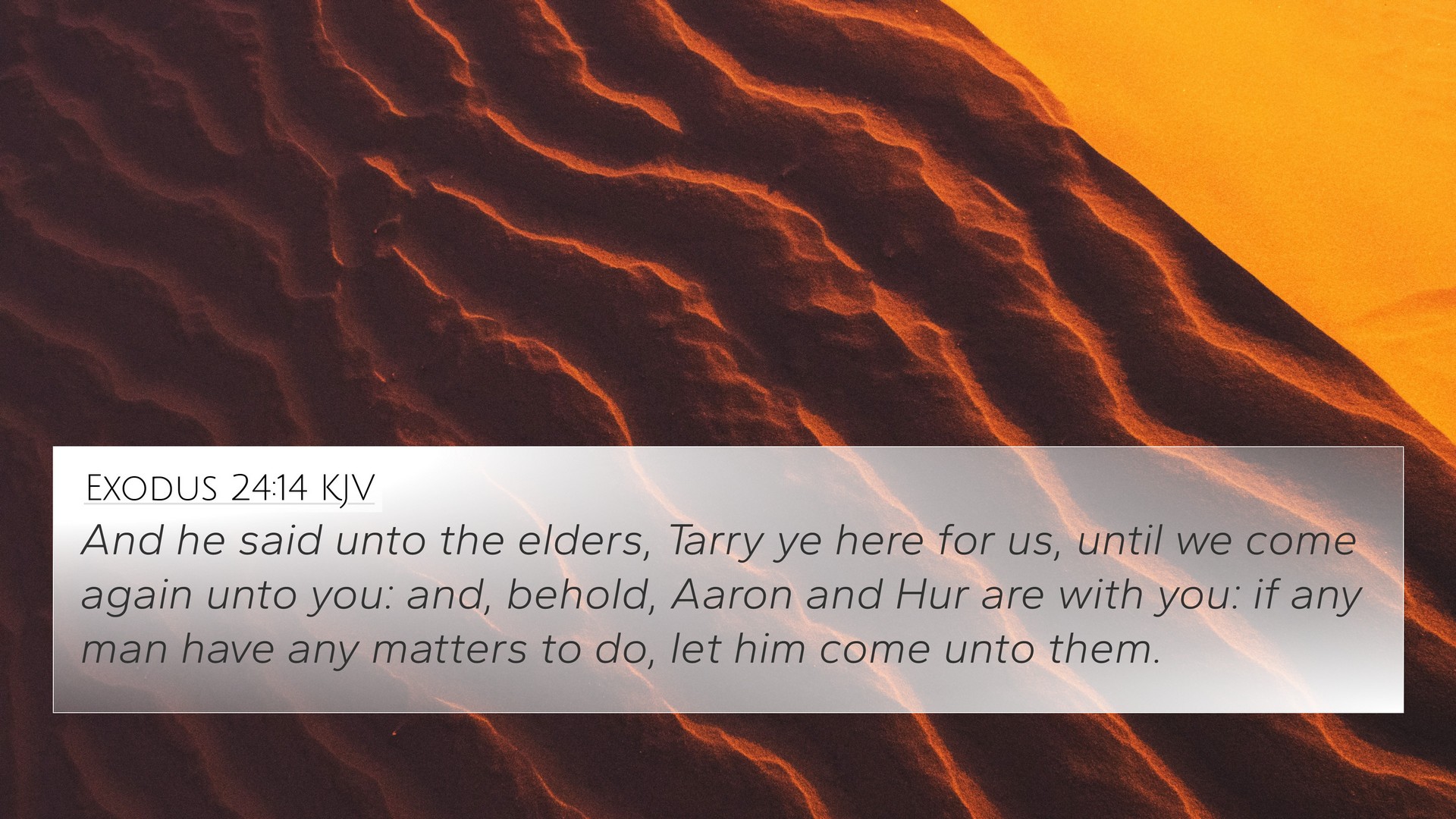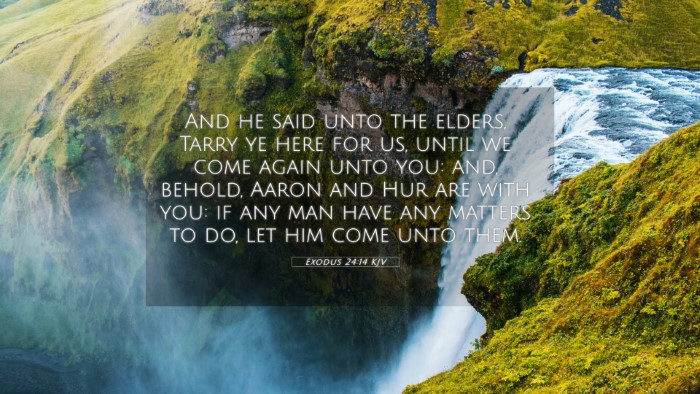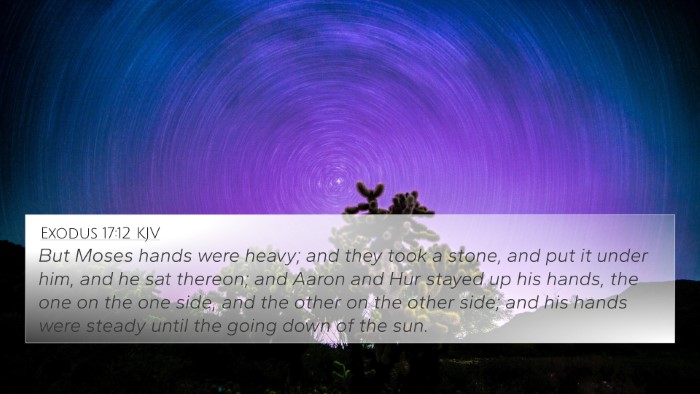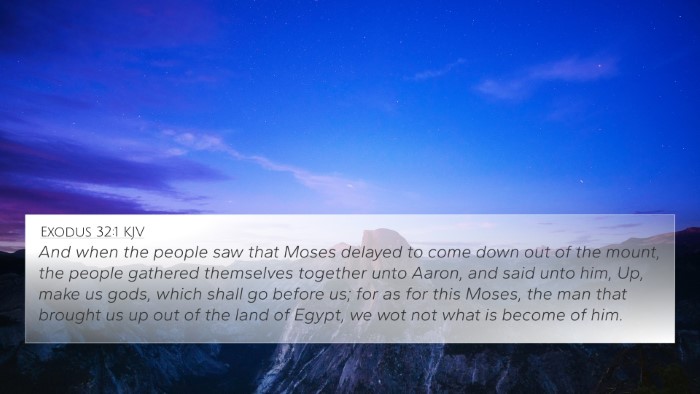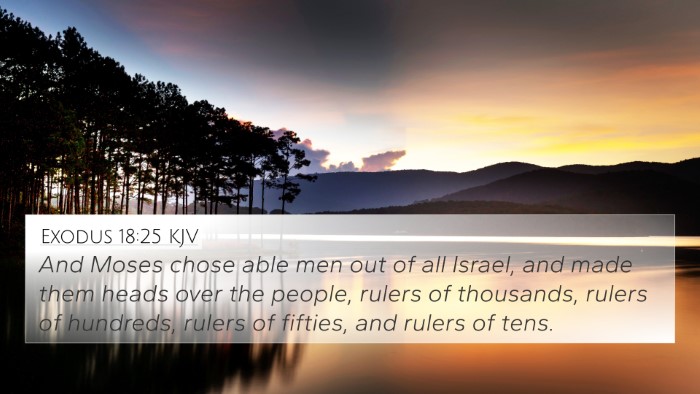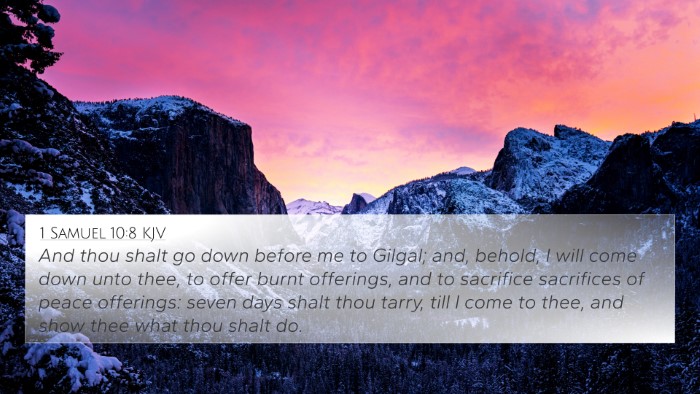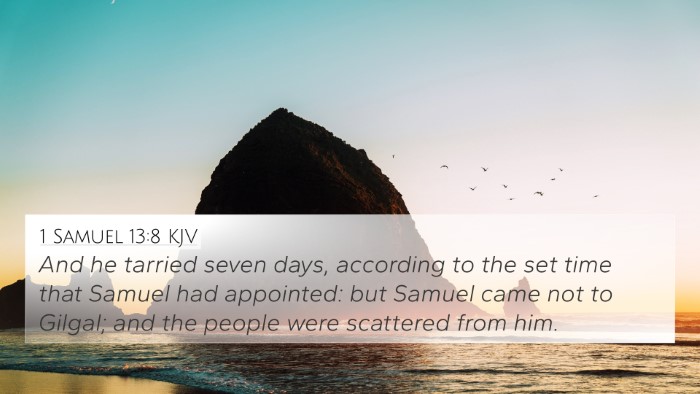Understanding Exodus 24:14
Exodus 24:14 states, "And he said to the elders, 'Wait here for us until we return to you. Behold, Aaron and Hur are with you. Whoever has a dispute, let him go to them.'" This verse highlights the leadership structure established by Moses among the Israelites as he ascends Mount Sinai to receive the Law.
Meaning and Context
This verse captures a pivotal moment in the journey of the Israelites. After the profound experience of witnessing God's covenant, Moses is tasked with going up the mountain to receive the Ten Commandments directly from the Lord. Recognizing the need for order and mediation within the people, he appoints Aaron and Hur as temporary leaders. This arrangement not only demonstrates Moses' foresight but also showcases a model of delegated authority in spiritual matters.
Commentary Insights
-
Matthew Henry emphasizes that Moses, in his absence, is considerate of the people’s needs and provides wise counsel by appointing capable leaders to resolve disputes. This reflects his role as a shepherd and leader, ensuring that the community does not fall into chaos during his absence.
-
Albert Barnes points out that Moses' delegation to Aaron and Hur shows the importance of mentorship and collaborative leadership. By leaving them in charge, he instills confidence in his leaders and ensures that the people have access to guidance.
-
Adam Clarke notes the significance of the number of elders and their role in governance. Clarke explains that the presence of Aaron and Hur represents a continuity of leadership which is essential for maintaining order, particularly given the previous tumultuous experiences of the Israelites.
Cross-References and Connections
Exodus 24:14 can be connected to several other scriptures that explore themes of leadership, delegation, and conflict resolution:
- Exodus 18:13-27: This passage details Jethro's advice to Moses about appointing judges over the people, highlighting the need for shared leadership.
- Numbers 11:14-17: Here, Moses expresses his burden as a leader, and God instructs him to share the leadership responsibilities with seventy elders.
- Deuteronomy 1:9-18: Moses recounts how he appointed leaders to help judge the people, further underscoring the theme of distributed authority.
- Acts 6:1-4: In the New Testament, the apostles similarly delegate responsibilities to deacons in order to maintain focus on prayer and ministry of the word.
- Titus 1:5: Paul encourages appointing elders in every town, reflecting ongoing biblical principles of leadership structure.
- 1 Peter 5:1-3: In this passage, Peter speaks about the responsibilities of elders, emphasizing the qualities of guidance and oversight in ministry.
- Matthew 20:25-28: Jesus teaches his disciples about servanthood in leadership, contrasting worldly views with divine principles.
Thematic Connections to Other Biblical Texts
The themes found in Exodus 24:14 resonate deeply throughout the scripture, inviting deeper study of leadership and community dynamics. Below are various thematic connections tied through cross-referencing:
- The unity of community in conflict resolution can be traced through Philippians 4:2, where Paul urges two women to agree in the Lord.
- For the theme of leadership selection, 1 Samuel 16:7 reminds us that God looks at the heart, a principle vital in appointing leaders.
- The notion of trusted advisors can be linked to Proverbs 11:14, which states that in the multitude of counselors there is safety.
- Hebrews 13:17 reinforces the importance of following leadership within the church context, drawing on the principles established in Exodus.
- Finally, Proverbs 27:17 affirms the collaborative development of character, "Iron sharpens iron," which can also be applied to leadership amongst peers.
Application for Today
Exodus 24:14 encourages contemporary believers to consider how authority and leadership are structured within their communities. Are there opportunities to delegate responsibilities in a manner that supports and strengthens the community? The spiritual health of any gathering relies heavily on ensuring that leaders are equipped and entrusted with roles that promote peace, order, and mutual support.
Through diligent study and prayerful contemplation, such biblical passages can inform one’s understanding of effective Christian leadership and the importance of maintaining community cohesion.
Conclusion
In summary, Exodus 24:14 serves as an important reminder of the principles of leadership and community organization within the body of believers. The verse and its cross-references prompt reflection on how we navigate authority and the ways in which we uphold one another, drawing on the broader biblical narrative to enrich our understanding and practice.
